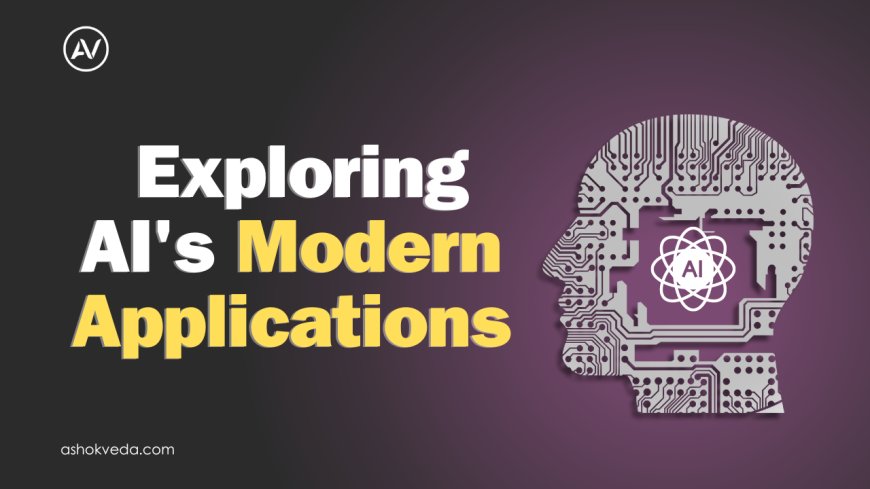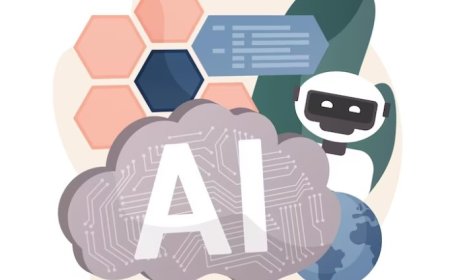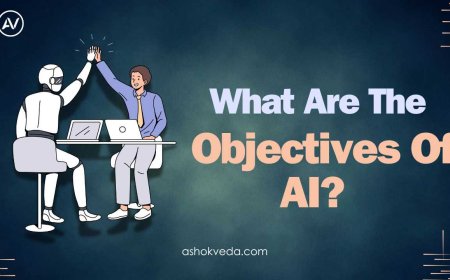Artificial Intelligence and Its Applications: In Modern
Discover how artificial intelligence is transforming modern technology, influencing industries like healthcare, finance, and transportation.

The use of artificial intelligence and its applications in modern technology is significantly changing how we live our daily lives. AI is increasing the standard for creativity and efficiency by combining deep learning methods with machine learning technology. AI-driven solutions are already making a big difference in a variety of industries, including healthcare and finance. They are enhancing diagnosis and customizing services. Modern technology is heavily dependent on AI integration, which facilitates task automation and more intelligent decision-making. AI in automation is especially exciting since it takes care of routine duties, freeing humans up to take on greater problems. Artificial Intelligence and Its Applications in Modern Technology demonstrate the significance of AI in our tech-driven environment by assisting in resource optimization and operations efficiency. Without simply increasing productivity, these developments are creating new opportunities and improving the ease and excitement of our daily lives.
What is Artificial Intelligence?
Artificial intelligence (AI) refers to the simulation of human intelligence processes by machines, especially computer systems. These processes include learning, reasoning, and self-correction.
key concepts of AI
Machine Learning: Machine learning is the process by which computers learn from data over time to get smarter. Imagine teaching a dog new tricks; instead of a dog, you have a computer that improves with practice.
Neural Networks: The human brain serves as an inspiration for them. Similar to how our brains function, they resemble a network of interconnected "neurons" in a computer that cooperate to identify patterns and find solutions.
Deep Learning: Machine learning with extra power is called deep learning. For really difficult tasks like speech recognition and image recognition, it makes use of multi-layered neural networks.
Robotics: The application of AI to autonomous robot task performance. Robots are all about automating physical chores, whether it's a robot arm constructing cars or a robot vacuum cleaner exploring your house.
Expert Systems: Expert systems are similar to having a digital consultant at your disposal. They emulate the ability to make decisions made by a human specialist by applying a set of rules to tackle complicated situations.
Reinforcement Learning: With reinforcement learning, an AI picks up skills via trial and error, much like a young child learning to ride a bike. Based on rewards and penalties, it makes judgments, receives input, and refines its actions.
Applications of AI in Modern Technology
AI in Healthcare
Healthcare has been significantly affected by artificial intelligence in several ways. Artificial intelligence (AI) is used in medical imaging and diagnostics to assist physicians in detecting diseases more effectively by analyzing images such as MRIs and X-rays. Another area where AI excels is in personalized medicine and treatment plans, which use data to customize treatments for specific individuals and enhance results. Chatbots and virtual health assistants are becoming more prevalent; they give patients immediate access to medical information and support, enabling them to better manage their health. AI is evaluating patient data to detect possible health risks early, enabling prompt intervention. Predictive analytics for disease prevention is also growing in popularity. AI is becoming more and more important in healthcare, providing tools and insights that help doctors and improve patient care.
AI in Finance
Algorithmic Trading and Investment Strategies
AI uses complex algorithms to analyze financial data and make trading decisions quickly and accurately.
Fraud Detection and Risk Management
AI monitors transactions to spot suspicious activity and help assess and manage financial risks.
Customer Service Through AI-Powered Chatbots
Banks and financial companies use AI chatbots to answer customer questions quickly and accurately.
Credit Scoring and Loan Approval Processes
AI analyzes financial data to help decide who should get a loan and what their credit score should be.
AI in Retail
Personalized Retail Experiments
AI suggests products based on user preferences and historical behavior, which contributes to the creation of personalized shopping experiences.
Demand forecasting and inventory management
By predicting which products will be in demand, AI helps retailers maintain the proper supply levels and enhance inventory management.
Customer Service and Support
AI chatbots are used by retailers to assist and respond to client inquiries, improving the effectiveness of customer care.
Dynamic pricing and price optimization
AI ensures competitive and ideal pricing by analyzing consumer behavior and market trends to make real-time price adjustments.
AI in Transportation
Self-driving cars and autonomous cars
Self-driving cars are powered by AI, which enables them to safely navigate roadways, avoid dangers, and carry passengers.
Optimization and Management of Traffic
AI examines traffic patterns to lessen congestion and enhance traffic flow.
Vehicle Predictive Maintenance
AI foretells when autos require maintenance, assisting in the avoidance of malfunctions and lowering repair expenses.
Optimization of Logistics and Ride-Sharing
AI improves transportation efficiency by matching drivers and passengers in ride-sharing systems.
AI in Manufacturing
Predictive Maintenance and Equipment Monitoring
AI predicts when machines need maintenance, preventing breakdowns and reducing downtime.
Quality Control and Defect Detection
AI helps identify defects in products during the manufacturing process, ensuring better quality control.
Supply Chain Optimization
AI analyzes data to improve supply chain efficiency, helping manage inventory and reduce delays.
Robotics and Automation in Production Lines
AI powers robots that automate tasks on production lines, increasing efficiency and consistency.
AI in Media and Entertainment
Content Recommendation Systems (e.g., Netflix, Spotify)
AI suggests movies, shows, and music based on user preferences and viewing or listening history.
AI in Video Games and Virtual Reality
AI creates realistic game characters and environments, enhancing the gaming and virtual reality experience.
Content Creation and Editing
AI helps with creating and editing content, such as text, images, and videos.
Personalization of User Experiences
AI customizes user experiences by tailoring content and recommendations to individual preferences.
AI in Smart Homes
Voice-Activated Assistants (e.g., Amazon Alexa, Google Home)
AI-powered assistants respond to voice commands to perform tasks like playing music, setting reminders, and answering questions.
Home Automation and Energy Management
AI controls home devices such as lights, thermostats, and appliances, optimizing energy use and convenience.
Security and Surveillance Systems
AI enhances home security by monitoring for unusual activities and alerting homeowners to potential threats.
Personalized Home Entertainment
AI tailors home entertainment options, such as movies or music, based on user preferences.
AI plays a crucial role in modern technology, transforming industries by improving efficiency and personalization. Its potential spans from finance and retail to transportation and smart homes, making everyday tasks easier and more efficient. Staying informed about AI advancements is essential as its influence continues to grow and shape the future.





































